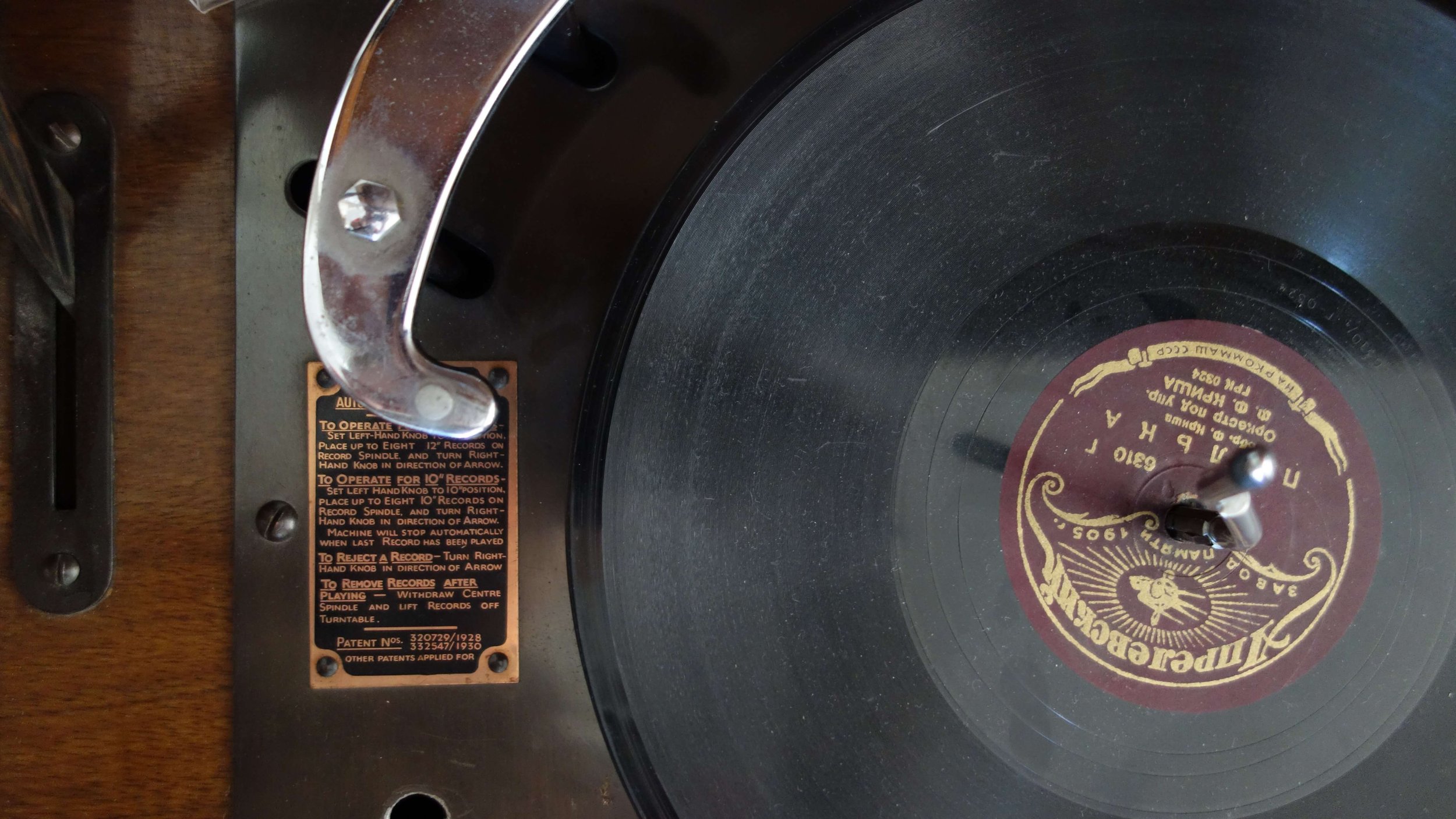Episode 8
Data in the Anthropocene: Music's Carbon Footprint & the Environmental Endgame
Kyle Devine, Decomposed: The Political Ecology of Music (MIT Press: 2019)
What price does the planet pay for music? Where has the material presence of music gone now that it comes to consumers mostly in the form of data on portable devices? What is the environmental price of the way we live musically today? The music scholar Kyle Devine has written a provocative book that sets out to answer these questions. This week, in the final episode of our first season, we talk about Devine’s sometimes surprising arguments, consider what they mean for our own projects, and turn towards music from a more-than-human future: AI jazz.
Kyle Devine’s 2019 book Decomposed: A Political Ecology of Music is making waves. As Devine explains, the book started as an investigation of the nostalgic return of the vinyl record, a seemingly “backwards” trend in current music consumption. However, the more he looked into the issue, the more he was challenged by the story of the music’s material presence as data in the age of mechanical reproduction. His key takeaway, and stark truth: recording technology, from shellac discs, to vinyl LPs, CDs, mp3s, and contemporary streaming services, comes with environmental impacts. What music is made of matters, and its cost to the natural world is a problem of “political ecology.”
In this final episode of our first season Chris takes us through the book, looking for resonances and intersections with the Sounding History project. As a historian of empire he finds parallels, for instance, between the music industry’s environmental costs and empire’s human toll, up to and including mass enslavement: whether in the sugar slaveocracies of the Caribbean, or the server farms of Iceland, empire’s environmental costs have too often been concealed “just over the horizon.”
Yet despite our enthusiasm for the book, we are not entirely convinced by some portions of Devine’s account. We reflect, for example, upon the price (in deforestation and exploitative labor) of the shellac record, as against the liberation and democratization that easily accessible recording technology brought to subaltern and minoritized musical experiences in the early twentieth century. Shellac records made it possible, wherever musicians and technology could come together, for people (“the people,” even) to tell their stories in sound. Without shellac, we believe, there would have been no blues revolution, no Ma Rainey, no Robert Johnson, even, no jazz.
It turns out that the social-environmental-historical-economic impact of datafied music is not an easy nut to crack.
Museum of Radio, Pereslavl-Zalessky - Soviet 78 rpm record in a record changer (18802038882) (Wikimedia Commons)
We thus end the podcast (and our first season!) with a quick glimpse of some work Tom is doing at the Alan Turing Institute, the UK’s national center for data science and AI, where he directs the project “Jazz as Social Machine.” Today machine learning agents drive cars, diagnose disease, play chess, and design buildings–among many other human tasks. Such autonomous systems also improvise jazz. It turns out, though, that jazz improvisation is apparently harder than driving a car! Why? The answer has to do with risk, historical “consciousness,” and the attitudes towards “getting it wrong” that underpin the algorithms of the machine learning revolution.
Key Points
Music objects, Kyle Devine argues in his book Decomposed: A Political Ecology of Music, come with considerable environmental costs, both from their materials (the chemicals used to make vinyl records and CDs, for instance) and the energy required to make them widely available (for example the consumption of electricity to sustain the server farms than underpin music streaming).
Of all the many human tasks that are now subject to takeover by machine learning agents, jazz improvisation turns out to be a particularly thorny challenge, perhaps because so much of machine learning depends on the avoidance of risk.
Resources
You can learn more about the environmental costs of music in Kyle Devine’s Decomposed: A Political Ecology of Music
His argument is summarized in an article he wrote in 2015 for the journal Popular Music.
You can find out more about Tom’s project “Jazz as Social Machine” on the Alan Turing Institute Website.
The Musica project, led by Kelland Thomas and Donya Quick, is at the Stevens Institute of Technology.
For more on the technological transformation wrought by shellac records, you can revisit a recommendation from earlier in the season: Michael Denning’s Noise Uprising: The Audiopolitics of a World Music Revolution.
All of the books mentioned in the episode can be found in our Sounding History Goodreads discussion group. Join the conversation!
Ep. 8 Collaborative YouTube Playlist – You’re welcome to contribute!


